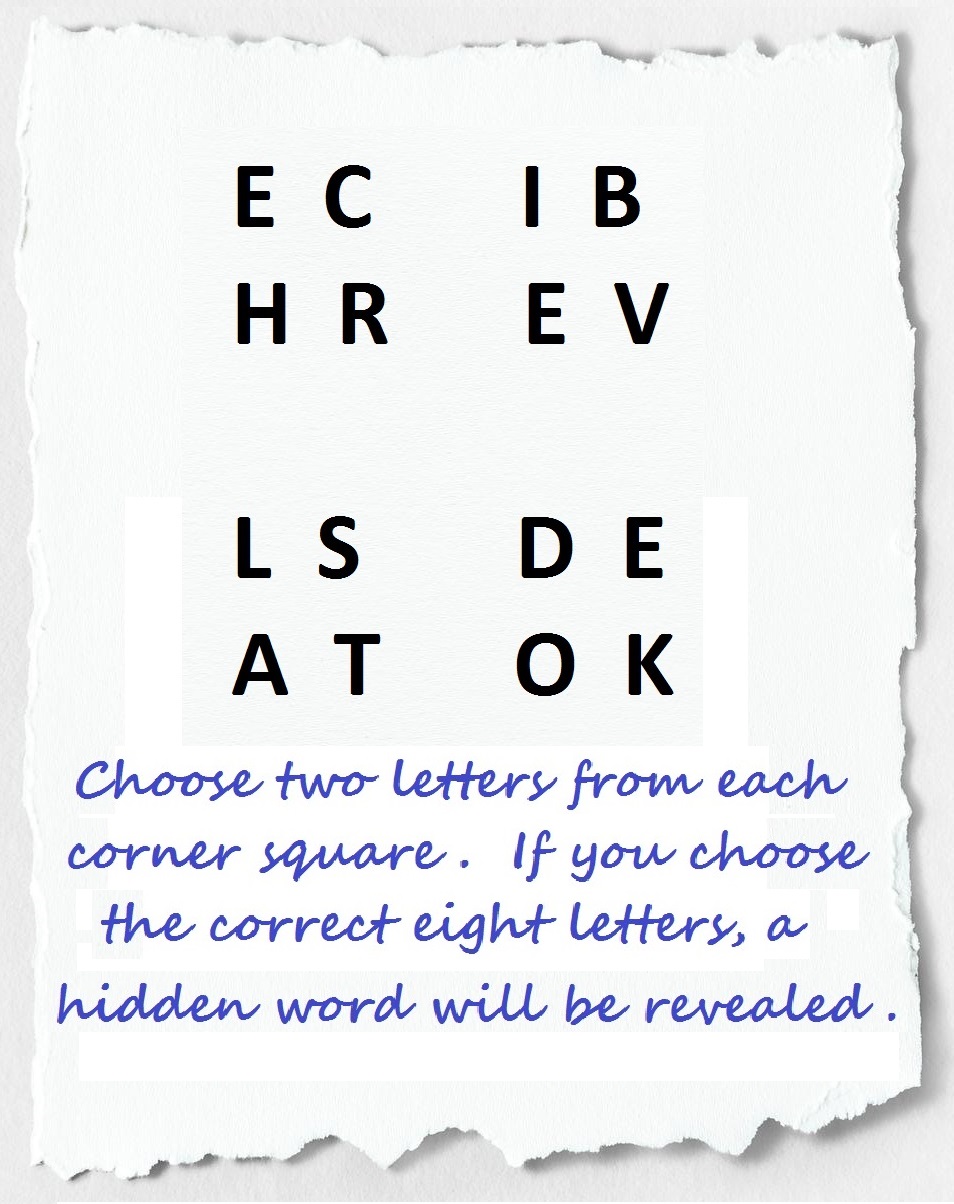Previous Month | RSS/XML | Current | Next Month
WEBLOG
October 31st, 2024 (Permalink)
Halloween Headline
'Giant' predator worms more than half a billion years old discovered in North Greenland1
I saw this movie2, but it was set in Nevada.
Notes:
- "'Giant' predator worms more than half a billion years old discovered in North Greenland", Phys Org, 1/3/2024
- "Tremors", Turner Classic Movies, accessed: 10/31/2024

October 25th, 2024 (Revised: 10/26/2024) (Permalink)
Dead Heat on a Roundabout
Since this entry is about the most recent public opinion polling in advance of the presidential election, I had to dust off my thesaurus and look up synonyms for "draw". That election is now less than two weeks away and the latest polls show the two major-party candidates headed for a photo finish. The latest Real Clear Politics (RCP) polling average has the two candidates tied1, and Nate Silver's "Silver Bulletin" has Vice President Kamala Harris ahead of former president Donald Trump by 1.3 percentage points2. The best news for Harris comes from Silver's former polling aggregator, FiveThirtyEight, which has Harris ahead by 1.5 percentage points3, though that's still neck-and-neck with Trump.
The good news for Harris is that she's ahead in two out of three averages, and not behind in the third, but the bad news is that her average lead is less than two percentage points, which is a deadlock in the polling business. Polling averages, such as these, do not have quantifiable margins of error (MOEs)4, but that does not mean they are perfectly precise, and the fact that the three averages differ by as much as one-and-a-half percentage points is enough to show this.
Some commentators have pointed out that both Hillary Clinton and Joe Biden were farther ahead at this point in time during their respective campaigns against Donald Trump5. Clinton, of course, went on to lose the election against Trump, despite that lead6. Though Biden won, his margin of victory was quite a bit less than his lead in the polls prior to the election. Both of these precedents suggest that Harris does not currently have a large enough lead to win, and there's not much time left for her to increase that lead.
However, there are two reasons to doubt whether these are fair comparisons to make: first, some of the pollsters whose polls go into these averages have adjusted their methodologies since the previous two elections in an effort to counteract any tendency to undercount Republicans or Trump supporters. Second, the midterm election of 2022 was predicted to produce a Republican "red wave" based on the polls, but barely produced a red ripple7. However, as I pointed out at the time, Trump himself was not on the ballot that year, so it was a dubious test of the "Trump effect" hypothesis, that is, the idea that Trump-supporting voters are harder for pollsters to find than non-Trump supporters.
I mentioned above that averages of polls, or statistical models based on them―such as the RCP average, or Silver's former or current models―do not have MOEs, because there is no underlying mathematical theory to support a precise measure of imprecision for such aggregations. The situation, however, is worse than that since an increasing number of the polls that are aggregated also lack MOEs due to declining response rates8.
Random phone calls have been the standard sampling method for surveys since the mid-twentieth century, and most pollsters still use them, but fewer and fewer people have been answering those calls. As a result, many pollsters are experimenting with alternative methods of drawing samples from the population, such as using internet panels. It's unclear, however, whether such samples are representative of the population as a whole, as well as whether the mathematics of random sampling applies to them.
All of this means that about the only use of polls in this election is in telling us that the race is too close to call.
Notes:
- "2024 National: Trump vs. Harris", Real Clear Polling, accessed: 10/25/2024.
- Nate Silver & Eli McKown-Dawson, "Silver Bulletin 2024 presidential election forecast", Silver Bulletin, 10/25/2024.
- "Who's ahead in the national polls?", FiveThirtyEight, accessed: 10/25/2024.
- For a recent, brief, and easy-to-understand primer on the MOE, see: Doug Schwartz, "Why the margin of error matters more than ever in reading 2024 election polls―a pollster with 30 years of experience explains", The Conversation, 10/23/2024.
- For example: Andrew Stanton, "Kamala Harris' Polls Compared to Biden, Clinton Two Weeks to Election", Newsweek, 10/21/2024.
- See: Dewey Defeats Truman, Again, 11/13/2016 & "It ain't over till it's over.", 9/23/2020.
- See: A Post-Election Trump Effect Post-Mortem, 11/19/2022.
- For a couple of brief, non-technical explanations of some of these problems, see: Spencer Kimball, Camille Mumford & Matt Taglia, "How pollsters have adapted to changing technology and voters who don't answer the phone", The Conversation, 10/22/2024 and Kaleigh Rogers, "Where Polls Can Mess Up (and What Pollsters Do About It)", The New York Times, 10/14/2024. Also, of course, see my own: How to Read a Poll, 12/6/2022.
October 10th, 2024 (Permalink)
Grisly or Grizzly?
Since it's the month ending with Halloween, here's a pair of easily confused words appropriate to the season. Let's start with a headline from several years ago:
Trial Weeks Away For Man Accused In Girlfriend's Grizzly Murder1
Unless the boyfriend sicced a bear on his girlfriend―in which case he should at least get credit for an imaginative murder weapon―the crime was "grisly" rather than "grizzly"2. You can't blame this mistake just on the editor―though that editor should have caught it―since the first sentence of the article makes the same mistake: "The trial of a man who is accused of killing his girlfriend in a grizzly way during sex is two weeks away."
Grizzly bears are not bears that are especially grisly, though the results of a grizzly bear attack would probably be grisly enough. Rather, the grizzly bear is so called because it has grizzled fur, that is, fur the hairs of which are tipped with gray. The word "grizzly" has no connection, other than sounding the same, with "grisly", since they come from different roots. "Grizzly" is related to the word "grizzled"3, which means "streaked with gray". Both words descend from the French word for "gray"4, namely "gris"5. "Gris" looks like it ought to also be the source of "grisly", which means "gruesome" or "frightening"6 but descends from an Old English word7.
I've never seen "grizzly" misspelled as "grisly", so this is one of those errors that goes only one direction, namely, "grisly" to "grizzly". It's a common error, too; for instance, an article in Forbes magazine a few years ago twice referred to a "grizzly murder"8, and it remains uncorrected.
Since "grisly" and "grizzly" are both English adjectives, neither a spell-checking program nor one that checks grammar is likely to correct it. To do so, they would probably have to be specifically programmed for it. I tried the sentence from the CBS News article in several online spelling and grammar checkers and none flagged the mistake. So, this is exactly the sort of homophonic duo that you should add to your mental checker.
Notes:
- "Trial Weeks Away For Man Accused In Girlfriend's Grizzly Murder", CBS News, 2/1/2017.
- Snopes Staff, "Grizzly vs. Grisly", Snopes, 7/3/2016.
- "Grizzled", Cambridge Dictionary, accessed: 10/7/2024.
- John Ayto, Dictionary of Word Origins (1991).
- "Gris", Larousse, accessed: 10/7/2024.
- "Grisly", Cambridge Dictionary, accessed: 10/7/2024.
- Ross & Kathryn Petras, That Doesn't Mean What You Think it Means: The 150 Most Commonly Misused Words and Their Tangled Histories (2018).
- Risa Sarachan, "True Crime Podcast 'Sacred Scandal' Explores Murder Mystery Involving Miami Church", Forbes, 12/2/2021.

October 6th, 2024 (Permalink)
The Puzzle of the Hyena's Password
The Agency for Counter-Terrorism (ACT) has recovered a computer belonging to the infamous international terrorist known only as "the Hyena". There is reason to think a terrorist attack is imminent, and it's possible there is evidence on the computer that would help thwart the attack. Unfortunately, the computer is password protected.
There is one clue to the password: it is known to the ACT that the Hyena has a poor memory and uses puzzles to help him remember passwords. Taped to the computer was the torn piece of paper shown.
A computer program may not crack the password in time to prevent the attack. The ACT believes that the password is somehow concealed in the puzzle on the piece of paper.
Can you help the ACT? What is the Hyena's password?
Pay close attention to the instructions on the torn piece of paper.
REVEALED


October 4th, 2024 (Permalink)
The Veep Debate
Here are some provisional thoughts on the vice presidential "debate" earlier this week.
- The "Debate"1: On the first of this month, a so-called debate was held between the vice presidential candidates of the two major parties, Republican Senator J. D. Vance and Democratic Governor Tim Walz. Though the format was a joint news conference―see below―there was more actual debating this time than during the previous debates this year2.
- The Debaters: Vance was a much better prepared and more effective debater than former president Donald Trump in either of his two debates this year. Trump lost his debate against Harris and he did not win the one against Biden, rather Biden lost it. In contrast, Governor Tim Walz was ill at ease and appeared poorly prepared for the debate, unlike Kamala Harris in her only debate appearance. In particular, Walz did not have an adequate answer prepared for a question about his past misstatements that he should have anticipated―but more about that in the next section.
- The Format: The debate continued this year's unfortunate return to the dual-moderator, joint news conference format, with two reporters from the host network asking the candidates questions that they frequently ignored. This began with the first question of the debate, in which both candidates were asked whether they would support or oppose a strike by Israel on Iran's nuclear facilities. Walz did not directly answer the question, using it instead as an excuse to attack Trump. Vance retaliated in kind, defending his running mate and attacking Kamala Harris, though at the end of his time he did indicate support for Israel's right to self-defense.
The most glaring failure to answer a question was Walz' reply when asked by moderator Margaret Brennan to explain why he falsely claimed to have been in Hong Kong during the Tiananmen Square massacre. Initially, he dodged the question with a rambling biography but, to her credit, Brennan pressed him for an answer. Walz then claimed that he "misspoke": if so, he "misspoke" several times, once as recently as February of this year3. Walz should have expected the question and prepared a quick confession and apology since there was no way he could get away with denying or excusing what he had said.
If, perish the thought, our political debates continue in this format, we need moderators such as this who will press the candidates to answer the questions asked, and then point out any persistent failures to do so.
- The Moderators: The aforementioned Brennan and Norah O'Donnell, both of CBS News, co-moderated the debate. Their moderation was decidedly mixed: as mentioned above, Brennan did a good job of insisting that Walz directly address her question about his past misstatements, but she also tried to act as an instant fact-checker, which led to one of the most memorable moments of the debate.
When Brennan tried to fact check Vance's claims about immigrants in Springfield, Ohio, Vance immediately pointed out that this violated an agreement that the moderators would not try to fact check the candidates during the debate4. This is exactly what Mitt Romney should have done when Candy Crowley broke the rules by trying to fact check him during his debate with Barack Obama5. If the moderators don't abide by the rules they agreed to, why should the debaters?
- Fallacies: There are too many to catalog, and not just by the debaters, so I'll pick one committed by a moderator as an example. In asking a question about how to reduce violence committed with guns, O'Donnell claimed that "the leading cause of death for children and teens in America is by firearms.6" This is only true if "children and teens" is redefined to exclude children under the age of one year old7. Moreover, "teens" includes those eighteen and nineteen years old, who are usually and, for many purposes―such as voting―legally considered adults.
Since you have to define a concept before you can count its instances, one of the most common statistical tricks to inflate or deflate a number is to redefine it8. Politicians and activists often want to inflate or deflate a number, either to scare or reassure us as the case may be. In this case, activists want to alarm us about violence committed with guns, and one way to do so is to make us think that such violence is the leading cause of death for "children". However, it is clearly a redefinition of "children" to exclude those under the age of one, and while those eighteen or nineteen years old are definitely "teens", they are usually considered adults. Finally, most of the deaths by firearms of those in this artificial age group of 2-19 occur in the teen years. Without all of this definitional legerdemain, the leading cause of death for children is vehicle accidents.
It should be needless to say that pointing this out is not to downplay the problem of violence with guns, and it shouldn't be necessary to play statistical tricks like this to get people concerned. The problem is worrisome enough without exaggeration.
- Who won?: The consensus seems to be that Vance won handily9, but reading the transcript―as I usually do instead of watching the debate―I had the impression that the outcome was much closer than the consensus suggests. I would still judge that Vance won, but that the result was relatively close. I've since watched some of the debate, and think one reason why Vance overwhelmingly won the general verdict is a matter of style rather than substance: he appeared poised and well-prepared, whereas Walz was nervous and occasionally flustered.
While this debate was much better than the previous presidential one, I hope that one of the losers is the joint news conference format. The Democrats have benefitted at the Republicans' expense from the transition from debates arranged by the Commission on Presidential Debates (CPD) to these network-sponsored ones. The CPD is, of course, imperfect but it handled past debates much better than the television networks have done this year. Perhaps the Republicans will have enough sense to go back to the CPD four years from now; either that or insist on a more balanced selection of outlets, such as including Fox News, though the Democrats will, of course, try to refuse it as Harris did earlier this year10. In any case, while Vance may have won this debate despite the odds against him, the GOP lost the debate negotiations this year.
Notes:
- From this point on I will drop the quote marks on "debate", though this event did not have a genuine debate format.
- See:
- After the Debate, 6/29/2024
- The Last "Debate"?, 9/1/2024
- Danny Hakim & Amy Qin, "Tim Walz Said He Was in Hong Kong in 1989 During Tiananmen. Not True.", The New York Times, 10/1/2024.
- David Bauder, "CBS News says it will be up to Vance and Walz to fact-check each other in veep debate", Associated Press, 10/1/2024.
- See: Second Presidential Debate Logic Check, Part 2, 10/20/2022.
- Stefan Becket, "Read the full VP debate transcript from the Walz-Vance showdown", CBS News, 10/2/2024.
- Nur Ibrahim, "Are Guns the Leading Cause of Death for Children in the US?", Snopes, 4/3/2023.
- See: Redefinition.
- See, for instance: Alan Rappeport, "Who Won the Debate? A Crisp Vance Fends Off Walz", The New York Times, 10/2/2024. Also see the online poll reported in: Hugh Cameron, "Who Won the VP Debate, Vance or Walz? Newsweek Readers' Verdicts", Newsweek, 10/2/2024. Newsweek doesn't explain how the survey was conducted, except to say that it was done online, so it's possible that it could have been gamed by partisans.
- Nur Ibrahim, "No, Harris Didn't 'Back Out' of Sept. 4 Fox News Debate with Trump", Snopes, 10/2/2024. A silly "fact check" apparently justified because some anonymous individuals I've never heard of claimed on social media that Harris "backed out" of the debate. No, she didn't "back out" because she refused from the beginning. For a similarly silly "fact check" from earlier this year, see: Soviet Anti-Semitic Propaganda & the Death of the Debates, 2/1/2024, footnote 2.